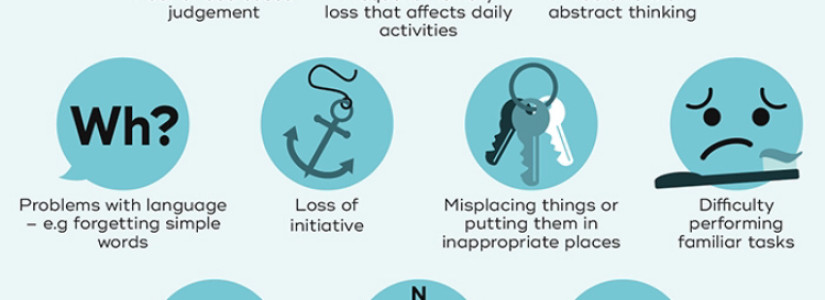
Dementia- A living bereavement
Article
Asst. Prof. Dr. Suman Prasad Adhikari
on Sun, May 05 2019 02:32 PM
1915 Views
2 persons recommended
Dementia is a condition characterized by progressive loss of cognitive functions without change in consciousness.
The cognitive functions affected are:
- Praxis- motor functions like ability to perform tasks
- Gnosis- ability to recognize things
- Memory
- Speech
The resultant effects of changes in these functions are:
- Apraxia- inability to perform activities of daily life that individual used to perform normally.Ex: inability to button and unbutton clothes, inability to brush teeth, comb hair and shave beard, inability to work in kitchen, garden.
- Agnosia- inability to recognize things/ items used in daily life.
- Amnesia- forgetfullness, initially past memories are preserved but later individual has no memory of either past or present. He is unable to learn new things.
- Aphasia- some people experience change in speech with inability to understand and respond to questions or inability to name things/people and inability to put up words together.
Besides cognitive other symptom domains of dementia are:
- Executive- inability to plan, organise and maintain attention.
- Behavioral and psychosocial symptoms- hyperorality (mouthing everything), hyperphagia (increased food intake), apathy (dulled emotions), psychotic and affective symptoms.
- Activity- agitation, aggressiveness, wandering
Prevalence
- 5% in population more than 65 years
- 20-40% in more than 85 years
Most common dementia is Alzheimers.
Phases of Alzheimers dementia
- 1st- failing/ poor memory, muddled tasks, spatial disorientation
- 2nd- rapid progression of intellectual and personality deterioration
- 3rd- profound apathetic dementia, bed ridden and double incontinence
Other types of dementia:
- Vascular dementia
- Fronto- temporal dementia
- Lewy body dementia
- Huntington disease
- HIV associated dementia
- Head trauma associated dementia
- Substance induced dementia
Treatment
- Behavior oriented therapy
- Cognition oriented therapy
- Emotion oriented therapy

Leave a comment